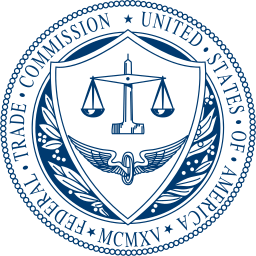Harvard Law School’s Cyberlaw Clinic
Harvard Law School’s Cyberlaw Clinic, based at Harvard’s Berkman Klein Center for Internet & Society, provides high-quality, pro-bono legal services to appropriate clients on issues relating to the Internet, technology, and intellectual property.
Students enhance their preparation for high-tech practice and technology policy work, earning course credit by working on real-world litigation, client counseling, advocacy, and contractual projects. The Clinic strives to help clients achieve success in their activities online, mindful of (and in response to) existing law; and works with clients to shape the law’s development through policy and advocacy efforts. The Cyberlaw Clinic was the first of its kind, and it continues its tradition of innovation in its areas of practice.
Law students enrolled in the Clinic work directly with clients, under the supervision of experienced attorneys. In some cases, the Clinic collaborates with counsel across the country and around the world to take advantage of regional or substantive legal expertise. Since it was founded, the Clinic has grown dramatically in the breadth and complexity of its cases, projects, and vision of social justice in the tech sector; the types and variety of clients it serves; its popularity with students at Harvard Law School; the sophistication of its pedagogy; and the connections it develops in its students among theory, doctrine, and practice.
Click Here to Visit the Cyberlaw Clinic
About the Cyberlaw Clinic
Harvard Law School‘s Cyberlaw Clinic, based at the Berkman Klein Center for Internet & Society, provides pro bono legal services at the intersection of technology and social justice. The Cyberlaw Clinic was the first of its kind, and it continues its tradition of innovation in its areas of practice.
Technology supports most human endeavors and, as a result, offers both significant benefits and real, lasting harms. Therefore, the Cyberlaw Clinic’s work, teaching activities, and client selection decisions are animated by our core values, through which we seek to promote:
- a robust and inclusive online ecosystem for free expression and broad participation in public discourse;
- awareness of power differentials and bias in technologies and socio-technical systems, mitigation of their negative impacts, and — where harm has occurred — the provision of adequate remedies;
- equity and inclusion as necessary considerations throughout technology development and technology policy;
- respect for and protection of privacy, vis-à-vis both private and government actors;
- access to knowledge and information, including through open government and transparency with respect to public and private technical systems that impact citizens (and, in particular, members of vulnerable populations); and
- the advancement of cultural production through efficient and balanced regulatory and enforcement regimes.
Participation in the Cyberlaw Clinic helps law students prepare for practice by working on real-world client counseling, advocacy, litigation, and transactional projects. The Clinic strives to center clients in our legal work, helping them to achieve success as they define it, mindful of (and in response to) existing law.
From the Blog
Apply Now! Summer Internship 2023
 The Cyberlaw Clinic is hiring summer interns for 2023! Current U.S. JD candidates with an interest in the intersection of tech, law, and social justice are invited to join our dynamic team! Summer legal interns work on all aspects of the Cyberlaw Clinic’s caseload and, like Fall and Spring semester students, take the lead on the projects they join, supported by the Clinic staff. Although Clinic projects vary from summer to summer, they often include substantive law related to the First Amendment, computer security, digital privacy, intellectual property, civic innovation, emerging technologies such as AI, human rights, reproductive justice and media and the arts. Interns will be involved in supporting the Clinic’s ongoing docket and in planning decisions about clients, cases, and topic areas to be addressed in the Clinic’s work during the upcoming academic year. Interns are supervised and mentored by the Cyberlaw Clinic instructors, and are provided with feedback and growth opportunities. →
The Cyberlaw Clinic is hiring summer interns for 2023! Current U.S. JD candidates with an interest in the intersection of tech, law, and social justice are invited to join our dynamic team! Summer legal interns work on all aspects of the Cyberlaw Clinic’s caseload and, like Fall and Spring semester students, take the lead on the projects they join, supported by the Clinic staff. Although Clinic projects vary from summer to summer, they often include substantive law related to the First Amendment, computer security, digital privacy, intellectual property, civic innovation, emerging technologies such as AI, human rights, reproductive justice and media and the arts. Interns will be involved in supporting the Clinic’s ongoing docket and in planning decisions about clients, cases, and topic areas to be addressed in the Clinic’s work during the upcoming academic year. Interns are supervised and mentored by the Cyberlaw Clinic instructors, and are provided with feedback and growth opportunities. →
Comment to the FTC on Transparency and Commercial Surveillance
 On October 21, 2022, the Cyberlaw Clinic submitted a comment in response to a request from the Federal Trade Commission for feedback regarding an Advance Notice of Proposed Rulemaking related to commercial surveillance and data privacy. The comment was submitted on behalf of the Berkman Klein Center and its projects and associates, including the Data Nutrition Project, the Lumen database, the Risk Assessment Tool Database project, and the Youth and Media project. The comment provides actionable recommendations that would represent meaningful incremental steps toward an eventual goal of end-to-end data transparency from data collectors and processors. These include tailored transparency mechanisms, flexible disclosure requirements, and protections for vulnerable populations online.
On October 21, 2022, the Cyberlaw Clinic submitted a comment in response to a request from the Federal Trade Commission for feedback regarding an Advance Notice of Proposed Rulemaking related to commercial surveillance and data privacy. The comment was submitted on behalf of the Berkman Klein Center and its projects and associates, including the Data Nutrition Project, the Lumen database, the Risk Assessment Tool Database project, and the Youth and Media project. The comment provides actionable recommendations that would represent meaningful incremental steps toward an eventual goal of end-to-end data transparency from data collectors and processors. These include tailored transparency mechanisms, flexible disclosure requirements, and protections for vulnerable populations online.
